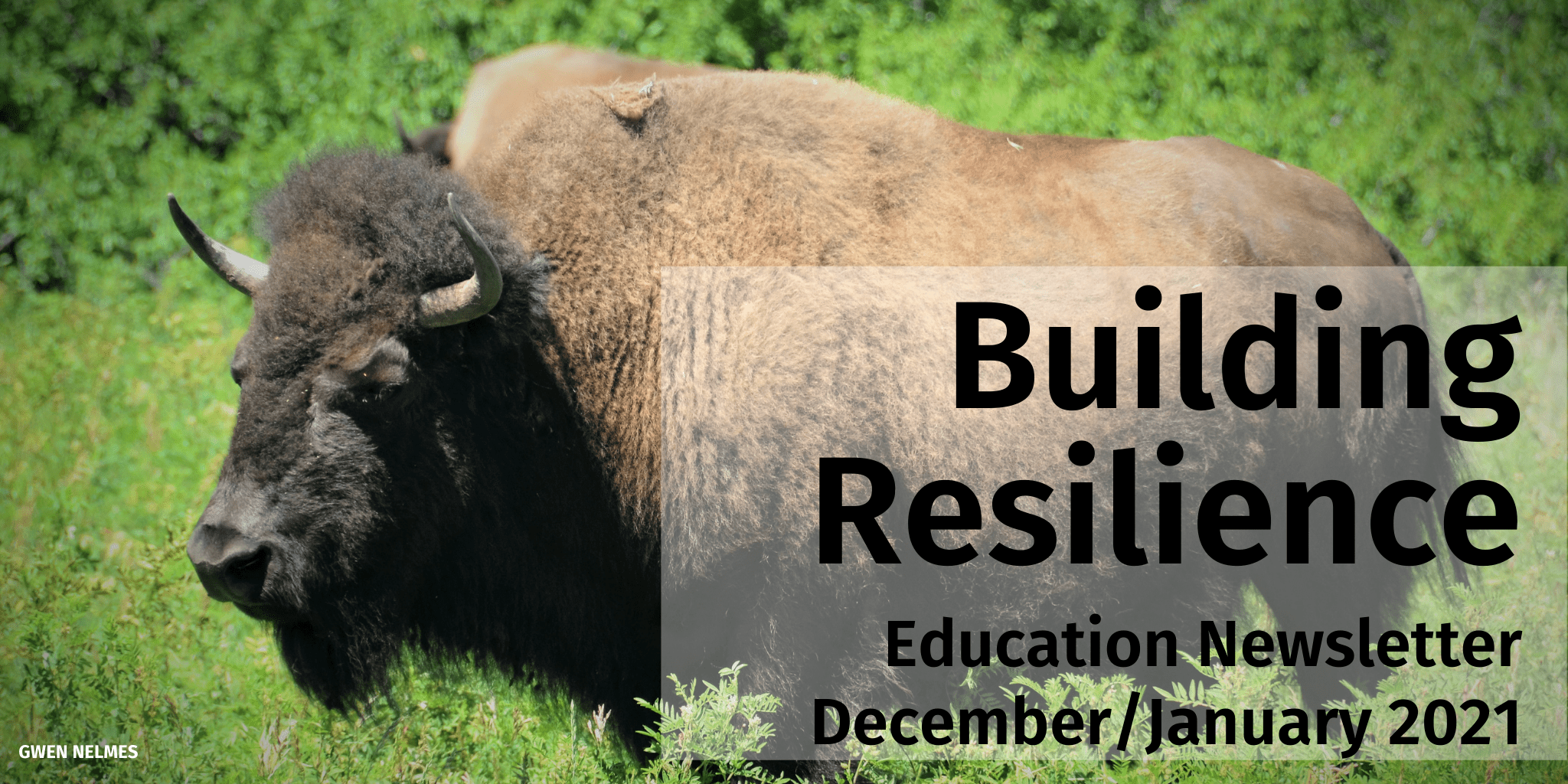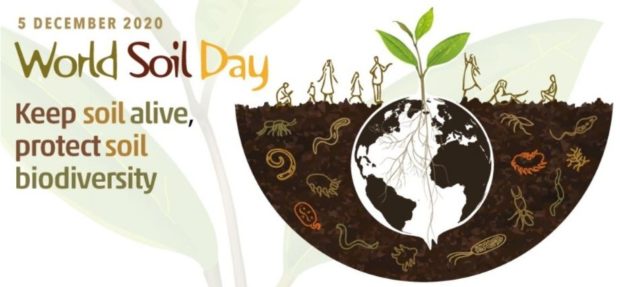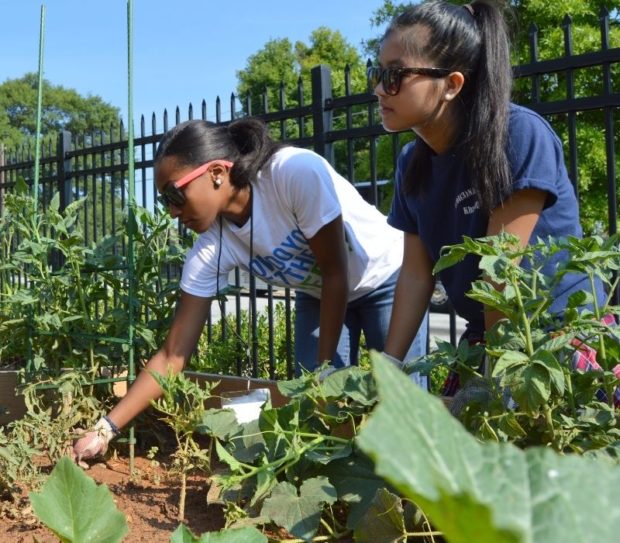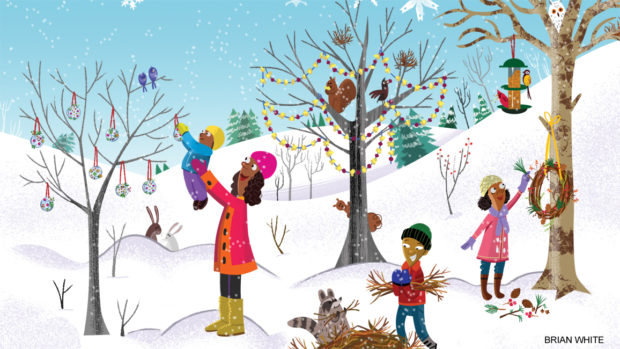We have much more to do and your continued support is needed now more than ever.
Education Newsletter December/January 2021

As we began the 2020 school year, we leaned heavily on our ability to adapt. Educators, students, and staff around the country worked to adapt to new learning and teaching methods, lesson planning, and ways of interacting. Moving into 2021, we are shifting from our focus on adaptation to a focus on resilience. There are distinct parallels between wildlife and landscape resilience and humankind’s capacity to recover from life’s difficulties quickly. Join us on this journey as we share stories of resilience.
re·sil·ience
the capacity to recover quickly from difficulties
Resilient Schools Consortium (RiSC)
Resilience is a multi-dimensional concept but is nothing new to students in a small group of schools in New York City. Since 2017 they have been participating in the RiSC program, a program educating youth in NYC schools about climate change science and climate impacts and natural and built solutions that increase climate resiliency. Using place as a foundation, students learn about and practice skills in areas such as coastal erosion and urban street trees and equity. Students hone their leadership and communication skills by speaking about climate change and their ideas for change. The RiSC program is growing and taking shape in Houston, Texas, as well as in the U.S. Virgin Islands through the National Wildlife Federation affiliate, the Virgin Islands Conservation Society (VICS). Staying grounded in place-based education, each program focuses on climate impacts and potential solutions unique to their locations. Download the free RiSC curriculum for middle and high school students, including modules on sea level rise, extreme heat, and climate justice.
Energy Pathway
As we move into January, our pathway focus will turn from Consumption & Waste to Energy Conservation. Both pathways have been adapted for Eco-Schools USA at Home. Check out the modules. Follow along on social media as we highlight learning opportunities and ways for students to take energy conservation action. Kick off the energy discussion by exploring the UN Sustainable Development Goals infographics for Goal 7 – Affordable and Clean Energy.
Take Learning Outside
Did you know that December 5th is World Soil Day? Soil is an important topic for students to learn about not just on one day in December, but every day. This year’s World Soil Day campaign, “Keep soil alive, protect soil biodiversity,” is an evergreen topic, intersecting with both topics in Earth and life science. Soil management is critical to maintaining healthy ecosystems.

Learn more today by exploring soil-related learning opportunities and lessons with these resources:
- Public Lands in the United States curriculum from The Wilderness Society. Explore this inclusive and equitable teaching resource to connect students with public lands. Specifically, look into Module 3: Case Studies in Connection with Land and Water.
- Kids Gardening’s Digging into Soil: A Garden Practicum. Discover lessons and activities like Sleuthing Soil Structure and Leaving Our Mark on Soil linked to Next Generation Science Standards for grades 9-12. The lessons can also be modified for middle-school aged students.
- Kiss the Ground Documentary. Educators can get free access to a 45 minute educational version of the Kiss the Ground documentary, which explores the positive impacts of soil regeneration to address the climate crisis. Download the free Soil Story middle school curriculum. Students can become a hero for the soil and take the Soil Quest.
Discover New Resources
Since 2001, the National Wildlife Federation’s Atlanta-based Earth Tomorrow Program has served as a pathway for urban high school students to get involved with environmental issues in their local community, participate in leadership development, and advocate for social justice. Along with the Detroit Leadership and Environmental Education Program, these programs “are rooted in vulnerable communities that are most impacted by environmental justice issues but least represented within environmental decision-making venues.”

Over the summer, and despite the challenges of the pandemic, National Wildlife Federation staff from across the country came together to successfully carry on with the Earth Tomorrow Summer Series via an engaging virtual format. Youth from high school programs in Detroit, Atlanta, Niagara Falls, and Houston joined together to participate in four sessions scattered over a two week period. Themes included Project Planning of Change and Environmental Justice is Social Justice. Plus students were invited to participate in a virtual nature challenge in their own neighborhood or local park. Read more about how the Earth Tomorrow Virtual Summer Series Takes on Leadership, Social Justice, and Nature. Follow @EarthTomorrowAtlanta on Instagram to keep up with their latest program activities.
I wanted to make an impact on my community because I saw how nature wasn’t flourishing in my area, and I wanted to make a difference by learning skills and getting access to the resources that would help me.
~Earth Tomorrow Atlanta Alumni Julius
Learn About Wildlife
Winter is on its way, and for many, it brings an increased chance of snow and ice. In the December/January 2021 issue of Ranger Rick® magazine, students can have fun learning 10 Cool Things About Ice while also gaining knowledge about why sea ice is so important to wildlife like polar bears, walruses, and seals.
- Follow up with the outdoor extension activity in the current Ranger Rick Educators Guide. Students can also utilize the National Wildlife Federation Wildlife Guide to further research polar bears and better understand their conservation challenges.
- Help students investigate the connection between climate change and sea ice loss.
- Watch Live with Teacher and Antarctic Researcher Sarah Slack: “The Most Dangerous Glacier on Earth” on the Eco-Schools USA YouTube channel.

Before students head off for winter break, share these fun ideas from Ranger Rick for things to do throughout the winter months. And don’t forget about the Ranger Rick® Nature Notebook pages, including the new In a Minute activity. Download it for free.
Virtual Green Opportunities
National Wildlife Federation
- Students can work on pathways like Energy, Biodiversity & Watersheds from outside the classroom with the Eco-Schools USA at Home resources
- ECHO’s Resources, including How-To Guides and Nature Play at Home.
- Virtual course: Climate Change: Building climate science knowledge to enact local change (grades 9-12)
- Engage high schoolers in conservation projects, policy & action by signing up for access to a free annual digital subscription to National Wildlife magazine.
- Find virtual classroom resources for at-home learning, including learning activities, educational videos, Ranger Rick Family Guides, & wildlife and pollinator craft activities.
Grants | Award Opportunities
- The Kids Gardening 2021 Youth Garden Grant is accepting applications through 12/18/20
- The EPA is now accepting nominations for the 2021 President’s Environmental Student and Teacher Awards; applications are due by 2/19/21
- National Geographic request for proposals for the COVID-19 Remote Learning Emergency Fund for Educators is open through 1/31/21
Other Free Resources & Opportunities
- Join Audubon’s 121st Christmas Bird Count between 12/14/20 and 1/5/21
- Introduce middle school students to Green STEM careers with Green Careers for a Changing Climate
- Participate in GLOBE Measurement Campaigns. These campaigns are great for virtual and in-person learning experiences.
- Learning about air quality? Explore STEM Online Learning Videos from General Motors, including How to Measure Air Quality Near Your Home
- Get outside with Green Schoolyards America free Schoolyard Activity Guides
- Sign up to video chat with a scientist from home with Skype a Scientist
- The World’s Largest Lesson – Introducing the Sustainable Development Goals to young people





















